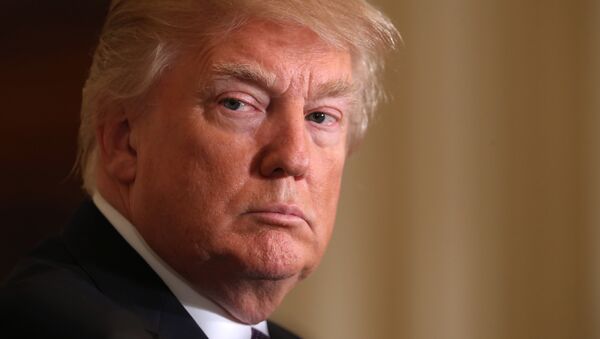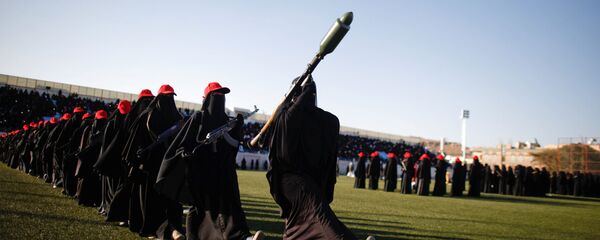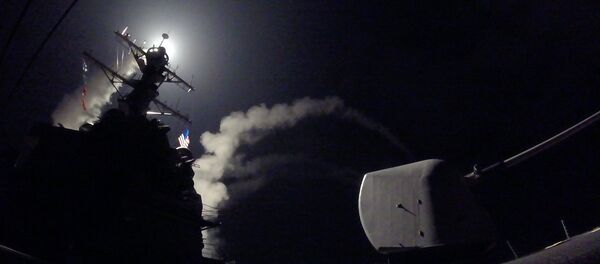Mattis' plan, he said, is to engage with Washington's strategic partners in the Middle East and Africa, and to discuss the current security situation in the region and cooperative efforts to counter destabilizing activities and extremist organizations.
"I think that [destabilizing activities] is an euphemism for Iran and perhaps some of the other forces in the region that are in alliance with Iran," Political analyst and Loud & Clear producer Walter Smolarek told the show's host Brian Becker.
"He's really like a fanatic against Iran and so he may be talking about alleged Iranian support for the Houthis in Yemen, he may be referring to Hezbollah in Lebanon, he probably has in mind their support for different political forces in Iraq."
According to Smolarek, identifying who is "destabilizing" is the critical dilemma the Trump administration is facing in the Middle East at the moment.
‘Mad Dog' Mattis's trip follows an April 6 US cruise missile strike on a Syrian airbase in Ash Sha'irat, a retaliation, Trump claimed, for an alleged chemical weapons attack against civilians in Syria's Idlib. Last week, the US military dropped America's largest non-nuclear bomb on Daesh targets in Afghanistan, signalizing once again a major shift in the Trump administration's foreign policy orientation.
"They've unlocked a magic political formula in the United States, which is that there is a consensus about imperialist war, there's a consensus about aggression for the sake of preserving or extending the US hegemony around the world," Smolarek said.
Smolarek stressed that the shift the world is witnessing in US foreign policy, and Trump's willingness to use military power more liberally than former President Barack Obama did, is extremely dangerous and that such careless moves could lead to a wider war.
"In Korea, it's much less likely for something like that to work out because… they have the potential, even if they don't respond right away with the nuclear strike, to launch a conventional retaliation against US troops in South Korea," he said.
"They could kill probably at the very least several hundreds US troops right away through artillery strikes and missile attack. That could become a wider war, real massive ground intervention very quickly. And of course there's China involved; North Korea also shares a border with Russia."
On Wednesday, Vice President Mike Pence warned North Korea not to test the resolve of the US military, saying that "the sword stands ready."
"That's so dangerous," Smolarek warned, "And it's just appalling that Mike Pence is using this warmongering rhetoric to ratchet up tensions."




